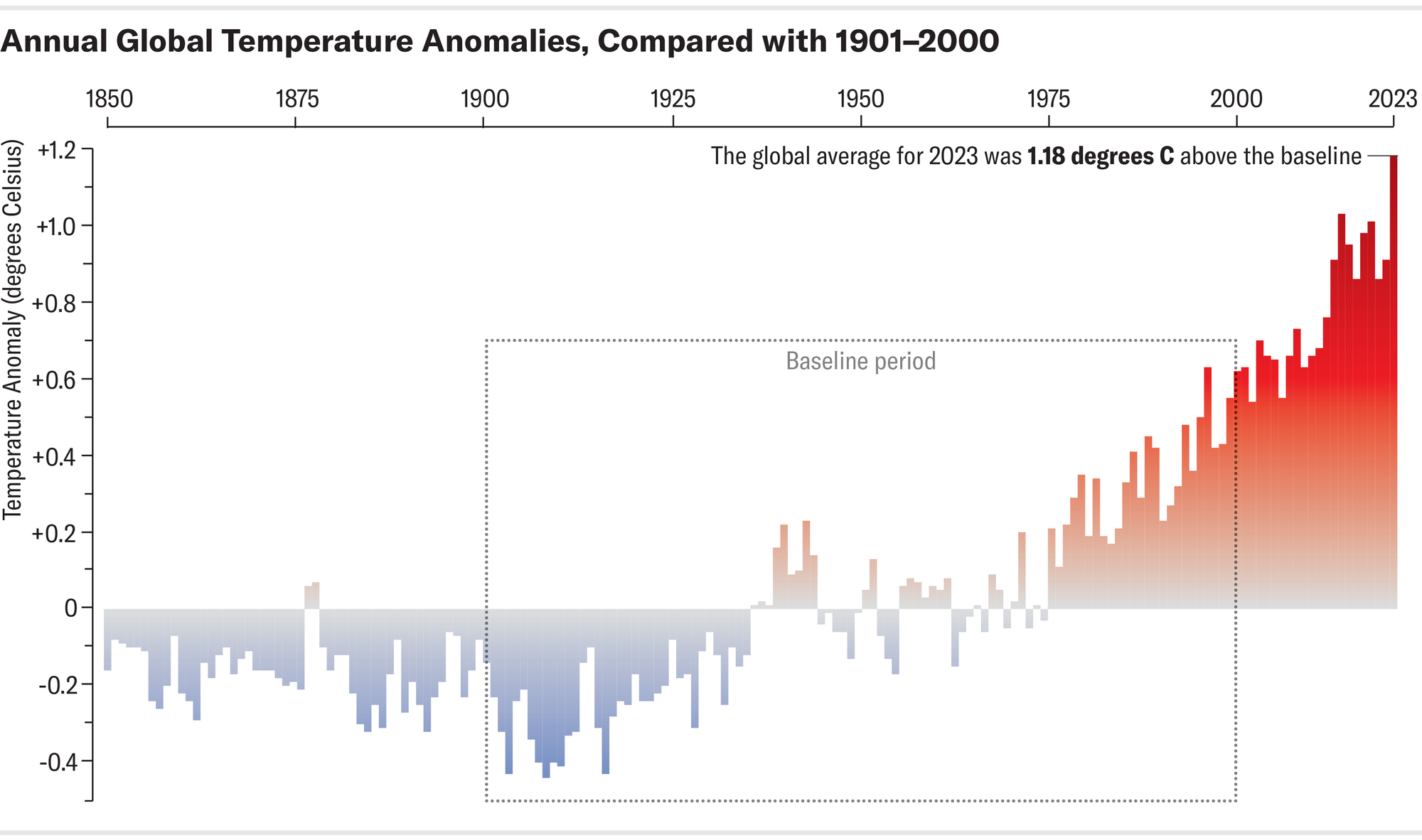The world’s major climate agencies have weighed in, and it’s clear that 2023 was the hottest year on record by a long shot. Last year was 0.15 degree Celsius (0.27 degree Fahrenheit) above the previous record holder, 2016, according to the U.S. National Oceanic and Atmospheric Administration. That margin is itself a record.
After seeing the 2023 climate analysis, I have to pause and say that the findings are astounding,” said NOAA chief scientist Sarah Kapnick in a statement from the agency. “Not only was 2023 the warmest year in NOAA’s 174-year climate record—it was the warmest by far.”
Humanity’s actions are scorching the Earth. 2023 was a mere preview of the catastrophic future that awaits if we don’t act now. We must respond to record-breaking temperature rises with path-breaking action,” said United Nations secretary-general António Guterres in a statement from the World Meteorological Organization (WMO) .
According to NOAA’s data, the planet’s surface temperature in 2023 was 1.18 degrees C (2.12 degrees F) above the 20th-century average—and 1.35 degrees C (2.43 degrees F) above the preindustrial levels. The European Union’s Copernicus Climate Change Service (C3S) found that annual global temperatures reached 1.48 degrees C above preindustrial levels. (Each climate agency uses slightly different methods to analyze climate data, which can cause minor differences among the agencies’ temperature estimates.)
The margin between the record in 2023 and the previous one in 2016 may seem small, but it’s exceptionally large on the scale of global annual temperatures. “Most records are set on the order of a few hundredths of a degree, so this is a big jump,” said Russ Vose, chief of climate monitoring and assessment at NOAA’s National Centers for Environmental Information, during a press briefing on Friday.
Last year also featured the two hottest months ever recorded—July, followed by August—and the most anomalously warm month, September. It was about 0.5 degree C (0.9 degree F) hotter than the previous hottest September in 2020 and a stunning 0.2 degree C (0.4 degree F) warmer than the previous record high temperature anomaly. In 2023 every month from June onward was the hottest such month on record.






